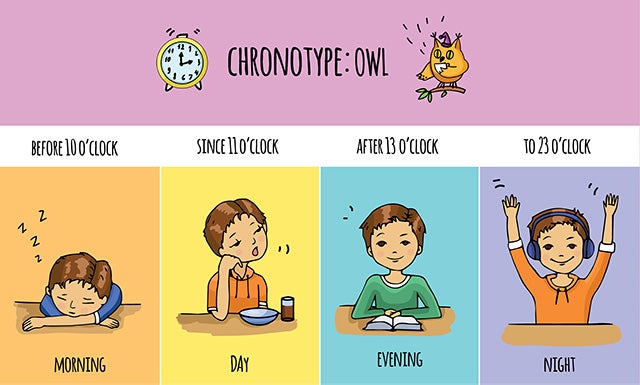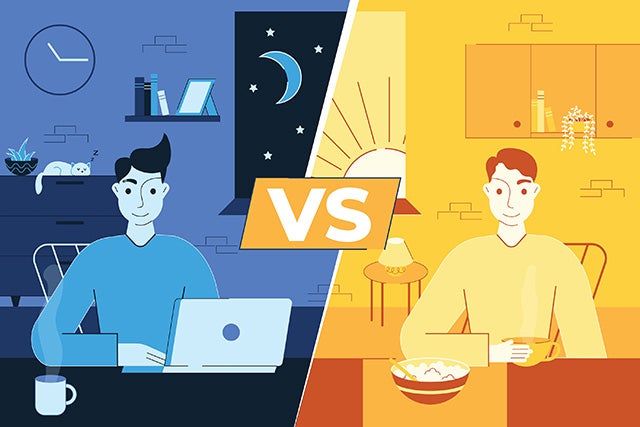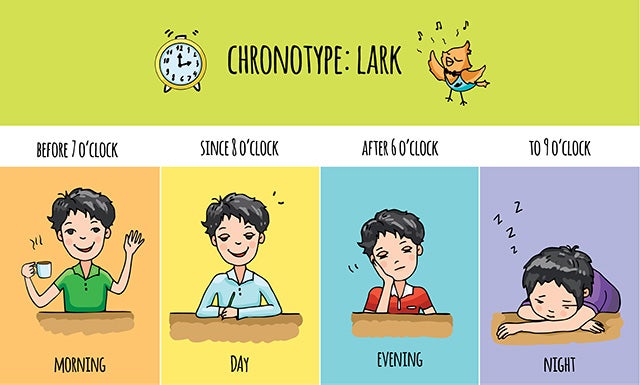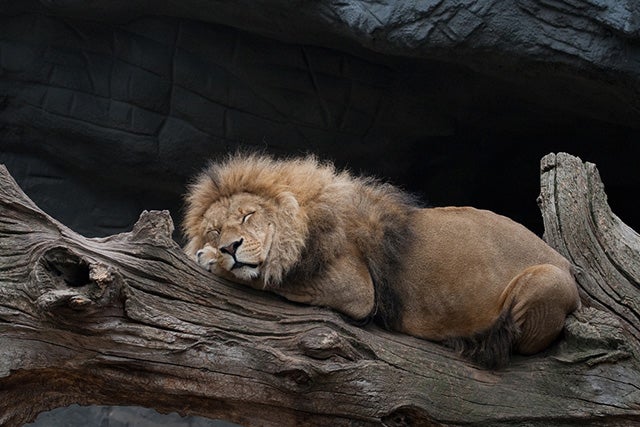Have you ever wondered why you’re more productive at night when everyone is asleep? Why are you always sleepy when the sun’s up?
Everyone has unique sleeping patterns and habits because of our different activities, health status, and age. These patterns from our body clock can be classified into four chronotypes.
Learn more about your chronotype so you can maximize your productivity!
What are Chronotypes?
Chronotypes are the categorical system that helps us understand our sleep cycle and productivity schedules. They give us an idea of when we are most sleepy and active throughout the day.
Chronotypes are based on the notion that individuals have a natural inclination to doze off and stay awake at a specific time. It also affects your eating habits, body temperature, medical conditions, energy levels, and exercise. Knowing your circadian typology or chronotype will aid in synchronizing your body clock with your daily tasks.
Our chronotype depends on our age, genes, and overall health. Research also suggests that our location can be a contributing factor to our chronotypes.
What are the Four Chronotypes?
In general, scientists classify chronotypes into eveningness or morningness. Are you a night owl or an early bird?

But sleeping patterns can’t merely be divided into two. Chronotypes occur on a spectrum since there are people who describe themselves as in between eveningness and morningness, called hummingbirds.
Researchers find it difficult to categorize the different characteristics associated with each chronotype. Several questionnaires were developed, but Dr. Michael Breus’ online quiz is the most popular.
According to him, there are four kinds of chronotypes.
Lion
Lion chronotypes are the early birds or morning hunters. They enjoy waking up even when the sun is still down. These disciplined beings stay productive from dawn until noon. In the evening, they find it hard to work anymore, so they fall asleep at around 9 PM or 10 PM.
Lions are good sleepers with good routines. They have a reduced risk of developing obesity, cardiovascular disease, and mental health conditions.
Bear
Bear is the most common chronotype, making up around 55% of the population, because their sleep cycle depends on the sun. These go-with-the-flow individuals have an amazing social life that doesn’t affect their sleep routine. However, their work is what causes inconsistency in their sleep routine.
Bears get up quickly and fall asleep right after jumping in bed. They are most productive before the afternoon, then take a nap at 2 PM-4 PM. Bear chronotypes thrive in traditional office hours.
Wolf
15% of the population is a wolf chronotype. These are the classic night owls who hate waking up in the morning. Getting up at noon gives them sufficient energy that will last for around four hours.
Wolf chronotypes will take a quick break then regain their energy at 6 PM to finish all their tasks. These nighttime hunters are impulsive. They are willing to take risks and sacrifice their sleep routine for the sake of productivity.
Wolves are susceptible to lack of sleep, chronic social jet lag, cardiovascular disease, depression, and diabetes.
Dolphin
Dolphin animals are alert even when they are catching some Zs. The same is true for human dolphins who are having trouble finding the right sleep schedule. The term for this is uni-hemispheric, which means half of their brain is sleeping while the other is active.
The dolphin chronotype is sensitive to noise and light but can get things done from 10 AM to 2 PM. These restless beings are nervous and anxious in the evening, so they wake frequently with their hearts racing. Scientifically speaking, their cortisol levels and blood pressure rise at night.
This routine makes dolphin chronotypes alert, perfectionists, and intelligent.
Why It’s Good to Know Your Sleep Chronotype
Identifying your chronotype not only gives you an idea into your sleep routine and productivity levels, but also helps you create a schedule for your tasks, making sure you take frequent breaks or naps when needed.
Knowing your chronotype can also provide insights about your personality trait. For instance, being an early bird is often associated with being optimistic and conscientious. They also perform well in school, especially in subjects that require creative thinking.
On the other hand, night owls are more open, flexible, and neurotic. These individuals are risk-takers. They are not physically active, so they have a higher risk of developing mental disorders, diabetes, sleep apnea, and substance abuse.
Some experts show that your chronotype is linked with your eating habits. An evening chronotype is less likely to eat healthy foods, but like consuming caffeine, alcohol, and sugar.
What is Your Chronotype?
Not everyone has the same sleep cycle, so there’s no need to worry if you don’t follow the solar schedule! As long as you get a good night’s sleep, then you will stay healthy.
What’s your chronotype? How do you stay productive but also well-rested with your sleep cycle? Share your experiences and questions by leaving a comment below! And check out our guide to 45 sleep tips to help you fall asleep!
Photo credit: Pavle Bugarski/Shutterstock; graphicwithart/Shutterstock;
Svetlosila/Shutterstock; Dagmar Hijmans/Shutterstock;
Szczepan Klejbuk/Shutterstock; Andrea Izzotti/Shutterstock;
Johnstocker Production/Shutterstock; Mila Supinskaya Glashchenko








